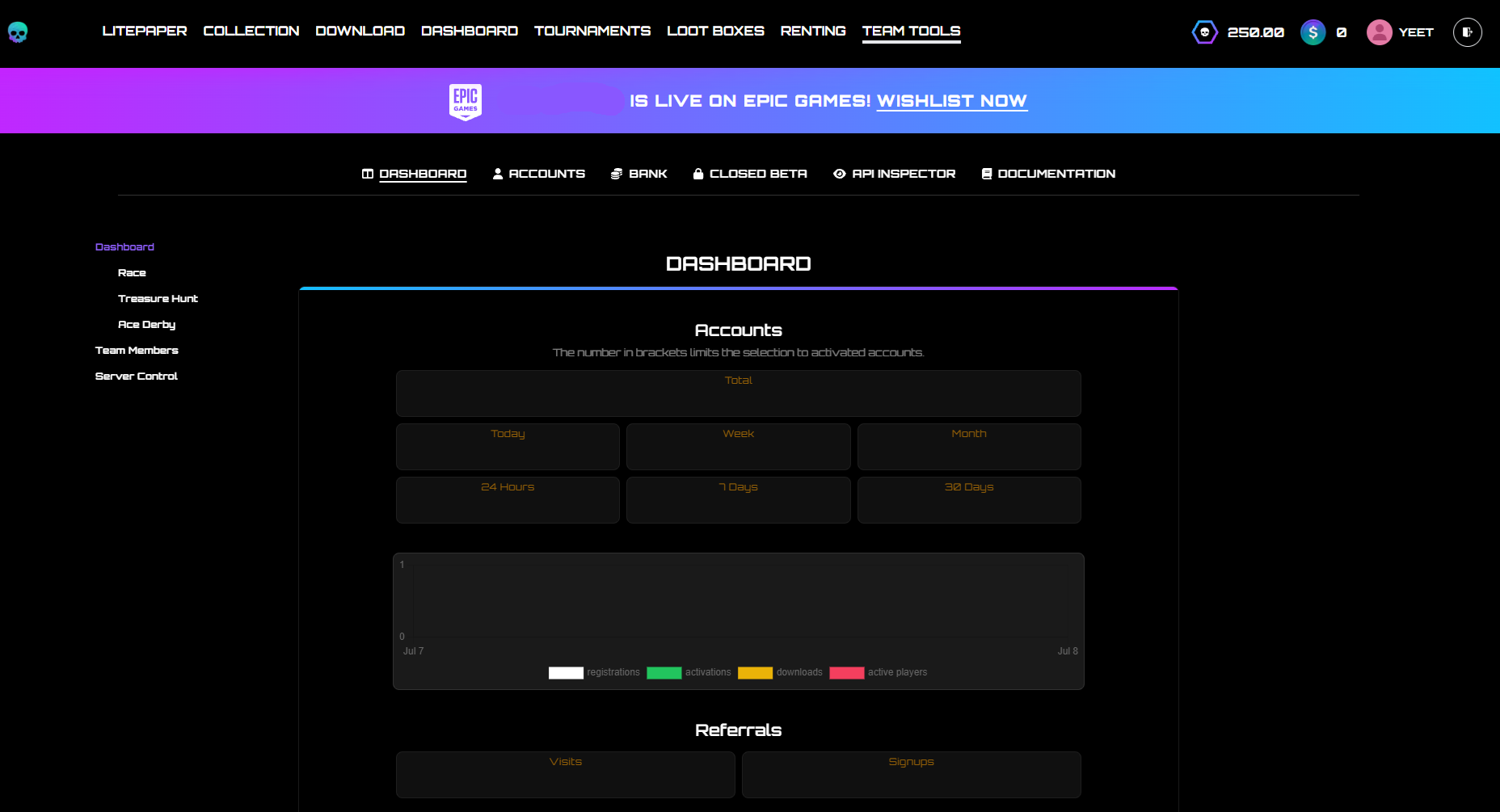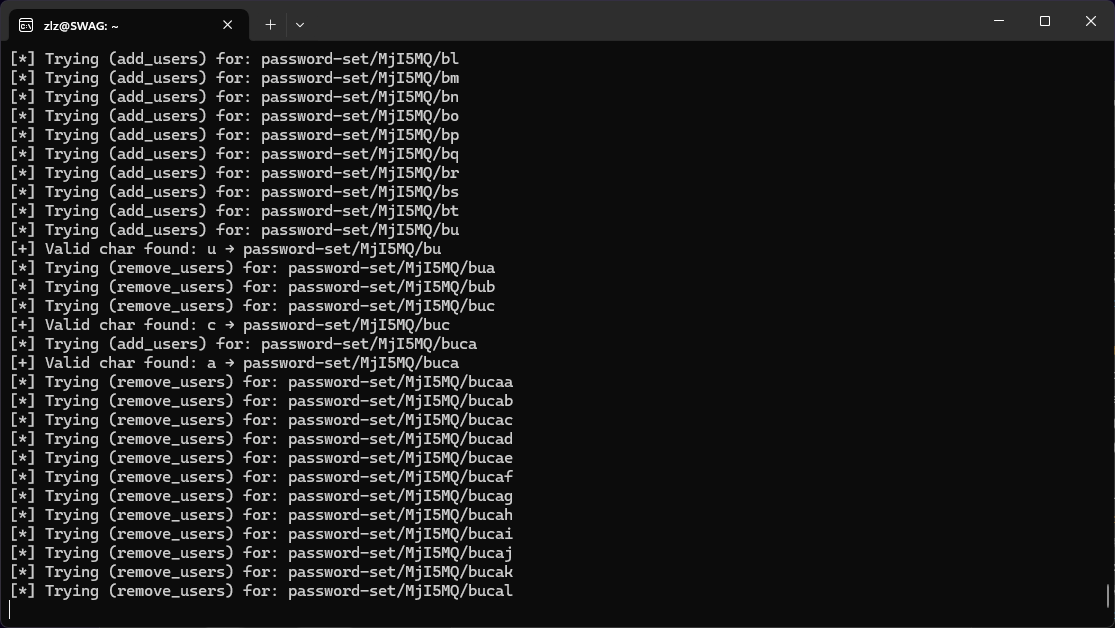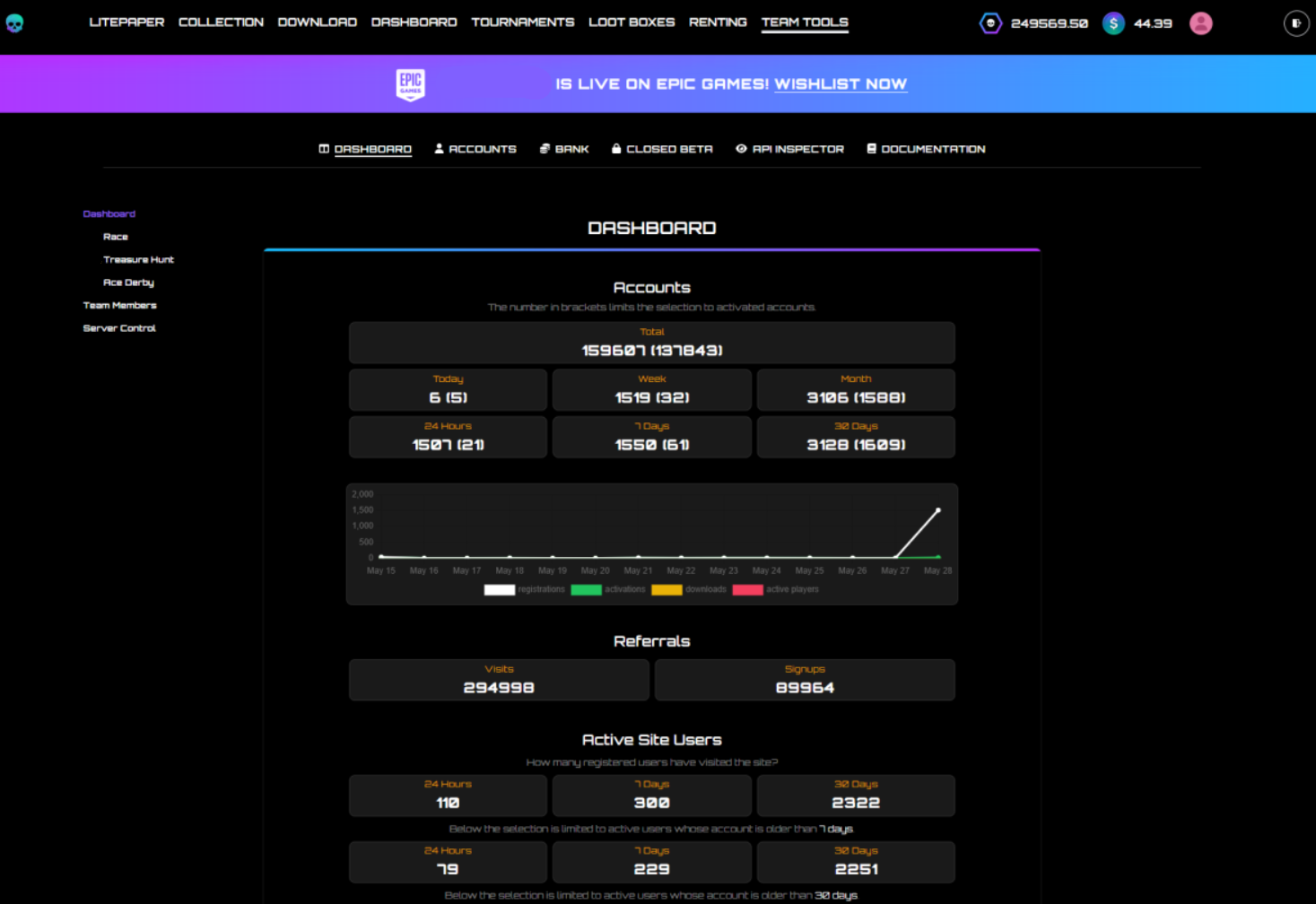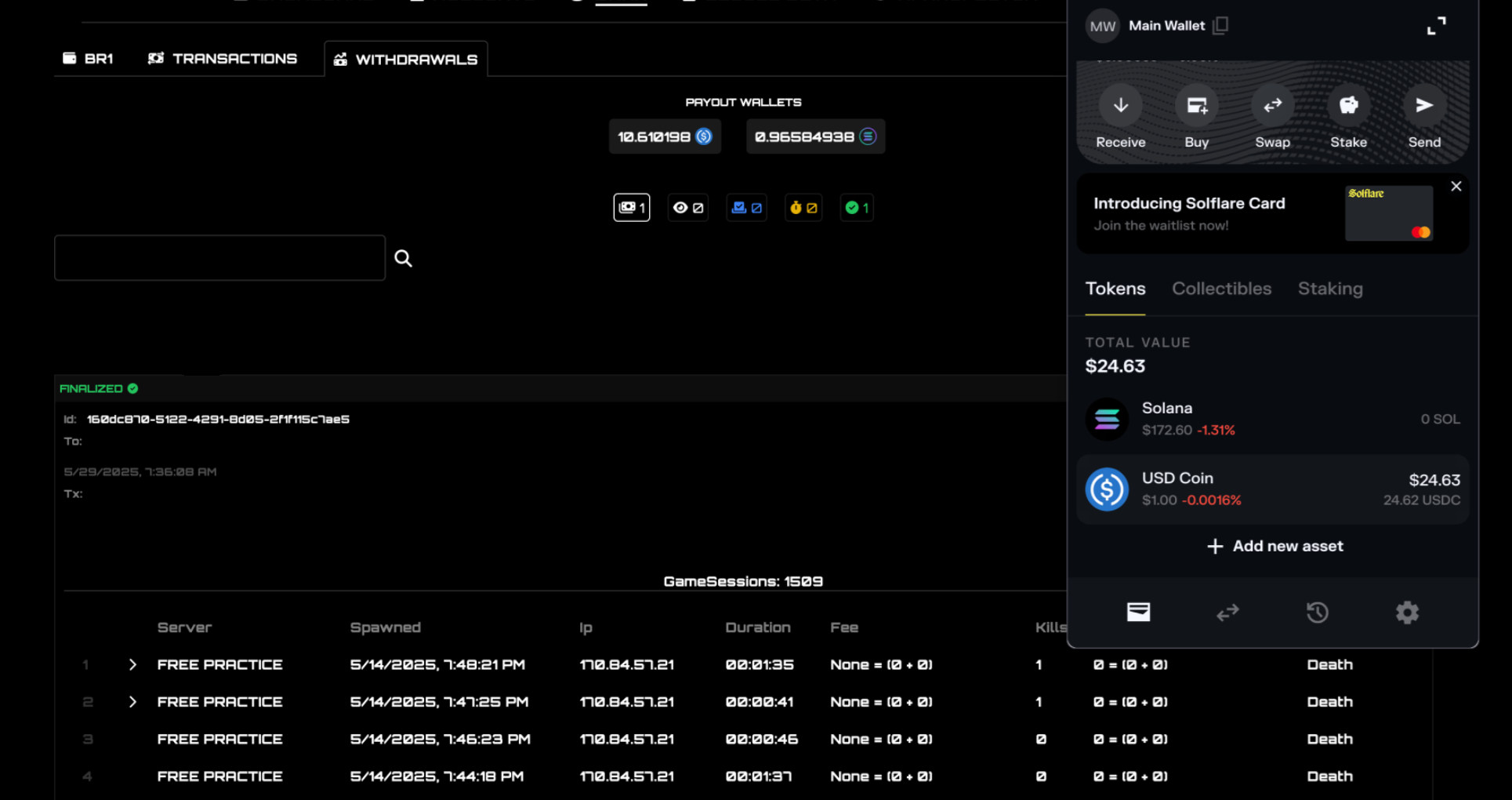Exploiting an ORM Injection to Steal Cryptocurrency from an Online Shooter
Earlier this month, Sam Curry and I found one of our first exploitable ORM injection vulnerabilities that we’ve seen in the wild and leveraged it to steal cryptocurrency from an online game.
We found an upcoming “pay-to-spawn” shooter, a battle royale game where you have to put up some amount of crypto to spawn and the winner takes all. Sadly for us, the game was not fully released and it’s in closed beta with no way to get invites. We also could not find the actual game binary to poke around on the website anywhere, but our friend Justin Rhinehart found it was uploaded to VirusTotal.
After acquiring a copy of the binary we were met with essentially a blank screen as the game servers were not currently running. So we had a closer look at the actual website powering the game. Account signups were enabled and after making an account and playing around with the website for a little bit, we made some progress. The age old match-and-replace “false” with “true” popped up another, previously hidden, menu section in the dashboard.


Looks like the admin panel for the game is just a hidden menu on the main site. While the match-and-replace trick gave us visual access to the admin panel, no data was actually accessible and most relevant API calls threw a 401 unauthorized, as our user accounts obviously lacked admin permissions. While this gave us a good target to aim for, getting permissions for the admin panel, we didn’t find any way to escalate our privileges on the main site.

Taking a step back and seeing if there were any other subdomains accessible, we noticed a “dev.” domain that appeared to have the exact same content as the main site. Signups worked there as well, with one major difference: Django debug mode was enabled. This meant API calls that failed were throwing verbose errors which allowed us to quickly gather more information about the inner working of the site. While Django debug mode is usually a quick win, this time all the potential secrets and passwords were redacted by Django. We tried gathering more information from the little source code snippets that are in the stack traces, also without any luck.
POST /api/race/queue HTTP/2
Host: dev.xxx.com
User-Agent: Mozilla/5.0 (Windows NT 10.0; Win64; x64; rv:138.0) Gecko/20100101 Firefox/138.0
Accept: */*
Accept-Language: en-US,en;q=0.5
Accept-Encoding: gzip, deflate, br
Content-Type: text/plain;charset=UTF-8
Content-Length: 120
{"queue":"default","action":"remove_users","query":{"start_filters":{"id":"123"},"filters":{},"order":[]}}
Thats when I noticed that the API request above threw an error told us that we were controlling the filter for an ORM query on the backend. Remembering the great blogpost plORMbing your Django ORM by Alex Brown, we got to work trying to get our admin permissions.
The error leaked a long list of models that we could try to juice for more information. Throwing password with the __contains filter at the request, to try and leak the user’s password hash worked!
POST /api/race/queue HTTP/2
Host: dev.xxx.com
User-Agent: Mozilla/5.0 (Windows NT 10.0; Win64; x64; rv:138.0) Gecko/20100101 Firefox/138.0
Accept: */*
Accept-Language: en-US,en;q=0.5
Accept-Encoding: gzip, deflate, br
Content-Type: text/plain;charset=UTF-8
Content-Length: 120
{"queue":"default","action":"remove_users","query":{"start_filters":{"password__contains":"a"},"filters":{},"order":[]}}
Gave us the following response.
{"queue": "default", "deleted": 140}
This means that 140 users had an “a” in their password hash. Django by default uses PBKDF2, which are pretty slow to crack and cracking passwords is boring anyways.
Other obvious targets to look for in these situations are session cookies stored in the database, or other access tokens like JWTs or password reset tokens.
Sadly, none of these were present.
We did however have the models is_superuser and is_staff to figure out all the admin accounts.
By combining multiple filters, we could now query for all is_superuser or is_staff accounts and figure out their email’s by bruteforcing the email with a __startswith query.
Sam cooked up a quick script to automate the bruteforcing of the emails.

Now we had the emails of the admins, but no way to actually log in. Looking back at the list of models, we noticed the mail_log model.
This had multiple fields, like subject and message. This sounded suspiciously close to emails that the system sends to users.
To quickly test that theory, I requested a password reset for my account and using the ORM injection queried the mail_log.message for my account for a string that was present in the email, like the actual link to reset my password.

Jackpot! Now all we had to do was combine everything to get our admin access.
We requested a password reset for the admin email that we leaked previously, then we leaked the password reset link from the email stored in the mail_log and simply used the link to reset the password of the admin so we can log in.

Now the last thing to check was if we had access to the crown jewels that is the payout wallet for the game. We tried sending a small amount of USDC that was in the wallet to us, which worked. We had full access to all admin functionality, including the ability to drain the wallets that are running the game!

Everything was responsibly disclosed to the companies involved and fixes were deployed for the issues that we found.
Shoutouts for helping with the hacking and blogpost: